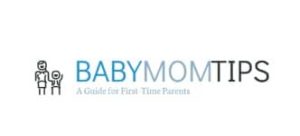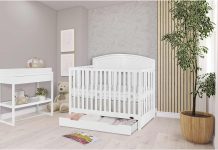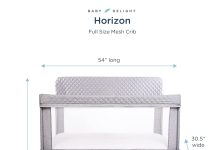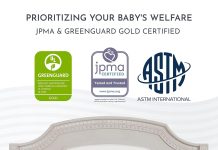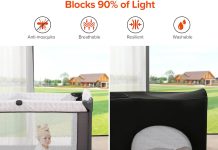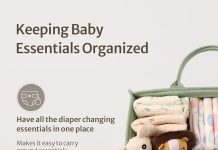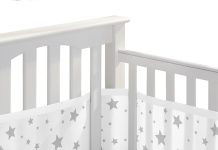If you’ve ever wondered whether using an inclined sleep product for your baby is a good idea, you’re not alone. Many parents are curious about the potential benefits of these products. From providing relief to babies with reflux to promoting better sleep, inclined sleep products have gained popularity in recent years. In this article, we will explore whether there are indeed benefits to using an inclined sleep product and discuss what factors you should consider before making a decision for your little one. So, sit back, relax, and let’s find out if an inclined sleep product could be the solution you’ve been looking for.
Review contents
Overview of Inclined Sleep Products
Definition of inclined sleep products
Inclined sleep products are specially designed infant sleep devices that elevate the head of the baby’s crib or bassinet, creating a slope rather than a completely flat surface. These products aim to provide a comfortable and safe sleeping position for babies, supporting their respiratory system and digestion.
Types of inclined sleep products
There are various types of inclined sleep products available in the market. Some options include inclined sleepers, positioned at a slight incline with a secure harness to keep the baby in place, while others come in the form of inclined crib wedges, which are placed underneath the mattress to elevate the head of the crib.
Importance of safe sleep for babies
Safe sleep practices are crucial for the well-being of infants. It is recommended that babies sleep on their backs in a flat, firm surface without any loose bedding or pillows. This reduces the risk of sudden infant death syndrome (SIDS) and suffocation. Ensuring a safe sleep environment is essential to promote healthy sleeping habits and reduce the likelihood of sleep-related incidents.
Controversy surrounding inclined sleep products
In recent years, inclined sleep products have been subject to controversy and scrutiny. Incidents of infant deaths associated with certain inclined sleepers have raised concerns about the safety of these products. The U.S. Consumer Product Safety Commission (CPSC) and other organizations have issued warnings and recalls for specific inclined sleepers due to the potential risk of suffocation.
Potential Benefits of Using Inclined Sleep Products
Encourages better digestion in infants
Babies often struggle with digestive issues such as acid reflux, colic, and gas. The inclined position offered by these sleep products can help alleviate these discomforts by promoting better digestion. With the head slightly elevated, gravity assists in keeping the food and stomach acid down, reducing spitting up and reflux symptoms.
Reduces the risk of acid reflux
Acid reflux is a common condition in infants, causing the backward flow of stomach acid into the esophagus. This can lead to discomfort, irritability, and even damage to the esophageal lining. Inclined sleep products can play a role in reducing acid reflux incidents by keeping the baby’s head elevated and preventing the acid from flowing upwards.
Enhances airflow and reduces the risk of suffocation
Inclined sleep products are designed with breathable materials and an inclined position that promotes airflow around the baby’s face and reduces the risk of suffocation. This is particularly important for newborns who may have limited control over their movements and are more susceptible to potential breathing obstructions.
Alleviates nasal congestion and facilitates breathing
Babies are prone to nasal congestion due to their developing immune systems and narrow nasal passages. The incline created by these sleep products can help alleviate congestion and facilitate easier breathing for infants. By allowing mucus to drain naturally, the baby can breathe more comfortably, particularly during periods of illness or seasonal allergies.
Supports babies with certain medical conditions
Inclined sleep products can be beneficial for babies with specific medical conditions. For example, infants with gastroesophageal reflux disease (GERD) often experience difficulties in managing reflux and require an inclined position for better symptom management. Additionally, babies with respiratory conditions such as bronchitis or colds may find relief in an inclined sleeping position that promotes easier breathing.
Scientific Studies on Inclined Sleep Products
Research supporting the benefits
Several studies have explored the potential benefits of inclined sleep products for infants. A study published in the Journal of Pediatrics found that infants who slept on an inclined surface experienced decreased episodes of acid reflux and improved sleep quality. Another study in the Journal of Perinatology demonstrated that inclined sleepers reduced the number of significant reflux episodes compared to flat sleep surfaces.
Contradictory findings and concerns
While some studies suggest potential benefits, there are also contradictory findings and concerns surrounding inclined sleep products. A study published in Pediatrics raised concerns about potential risks, particularly in relation to suffocation and positional asphyxia. The American Academy of Pediatrics (AAP) emphasizes the importance of following safe sleep guidelines, cautioning against the use of inclined sleep products.
Expert opinions on inclined sleep products
Experts have varying opinions on the use of inclined sleep products. Some pediatricians and healthcare professionals acknowledge the potential benefits for certain babies with specific medical conditions, but stress the need for strict adherence to safety guidelines. Others express concerns about the risks associated with inclined sleepers and recommend avoiding their use altogether.
Proper Usage and Safety Precautions
Recommended age and weight limits for inclined sleep products
It is essential to carefully follow the age and weight limits specified by the manufacturer when using inclined sleep products. These limits are designed to ensure the safety and proper support of the baby. As babies grow and develop, their sleep needs change, and using the product beyond the recommended age or weight limit may compromise their safety.
Ensuring a safe sleep environment
To maintain a safe sleep environment, it is crucial to place the inclined sleep product on a firm and sturdy surface. Avoid using additional pillows, blankets, or loose bedding that could potentially obstruct the baby’s breathing. Additionally, regularly inspect the product for signs of wear and tear and ensure that all straps and harnesses are properly secured.
Monitoring and supervision while using inclined sleep products
No matter the sleep product used, it is vital to closely monitor babies while they sleep. Regularly check for signs of discomfort or distress and ensure that the baby’s airway remains unobstructed at all times. Supervision helps to ensure the baby’s safety and allows for immediate action in case of any issues that may arise.
Choosing the Right Inclined Sleep Product
Considering the age and size of your baby
When selecting an inclined sleep product, consider the age and size of your baby. Different products have varying weight and size restrictions, so it is essential to choose one that is appropriate for your baby’s current stage of development. This ensures a comfortable and safe sleep environment.
Quality and safety features to look for
Ensure that the inclined sleep product you choose meets the highest quality and safety standards. Look for products that have undergone rigorous testing and certifications. Features such as breathable materials, secure harness systems, and easy-to-clean surfaces are important considerations to prioritize both comfort and safety.
Reading customer reviews and recommendations
Before making a purchase, it can be beneficial to read customer reviews and recommendations about specific inclined sleep products. Hearing about the experiences of other parents can provide valuable insights into the product’s effectiveness, durability, and safety. However, it is important to rely on reputable sources and consider a variety of perspectives.
Alternatives to Inclined Sleep Products
Flat surface sleep options
For parents who prefer not to use inclined sleep products, flat surface sleep options are also available. These include cribs with adjustable mattress heights, allowing the head of the crib to be slightly elevated. Placing the baby on their back to sleep on a firm mattress without any additional incline may be a preferred choice for some families.
Elevating the head of the crib
If the baby has specific medical conditions or concerns, elevating the head of the crib can provide a similar inclined sleeping position. This can be achieved by placing rolled-up towels or blankets underneath the crib mattress to create a gentle slope. It is important to ensure that these makeshift elevations are secure and do not pose a safety risk.
Using specialized wedge pillows
Some parents opt for specialized wedge pillows designed to be placed underneath the baby’s head and shoulders, creating a gentle incline. These pillows are made from breathable materials and are specifically designed for infant sleep purposes. However, it is essential to follow the manufacturer’s guidelines and safety precautions when using these pillows.
Common Misconceptions about Inclined Sleep Products
Misunderstanding about SIDS prevention
A common misconception surrounding inclined sleep products is that they can prevent SIDS. It is crucial to note that the only known and recommended method for reducing the risk of SIDS is ensuring babies sleep on their backs on a flat, firm surface free from any loose bedding or pillows. Inclined sleep products should not be relied upon as a preventive measure for SIDS.
Potential reliance on inclined sleep products
Some parents may develop a reliance on inclined sleep products to address their baby’s discomfort or sleep issues. It is important to remember that these products should be used as directed and for specific purposes, such as managing reflux or congestion. Overreliance on inclined sleep products may lead to a delay in addressing underlying issues or disrupt healthy sleep habits.
Assumption that all products are safe
While inclined sleep products can offer benefits for certain babies, it is crucial to select a safe and reliable product. Not all inclined sleepers or wedges available in the market meet the necessary safety standards. To ensure the safety of your baby, thoroughly research the product, its certifications, and any recalls or warnings associated with it.
Regulations and Guidelines for Inclined Sleep Products
Safety regulations for infant sleep products
Infant sleep products, including inclined sleepers, are subject to safety regulations set by the CPSC and other regulatory bodies. These regulations address factors such as stability, construction, restraint systems, and labeling requirements. It is crucial to verify that any inclined sleep product you consider purchasing complies with these safety regulations.
Guidelines from trusted organizations
Trusted organizations such as the AAP and the National Institute of Child Health and Human Development (NICHD) provide guidelines for safe sleep practices. These guidelines emphasize the importance of a firm and flat sleep surface and recommend against the use of inclined sleep products. It is essential to familiarize yourself with these guidelines to make informed decisions about your baby’s sleep environment.
Recalls and warnings on specific products
In recent years, there have been recalls and warnings issued for specific inclined sleep products due to safety concerns. Stay informed about any product recalls or warnings by regularly checking the CPSC website or subscribing to safety alerts. If you have purchased an inclined sleep product, ensure that it has not been subject to any recalls and that it meets the necessary safety standards.
Real-life Experiences and Parental Opinions
Testimonials from parents who have used inclined sleep products
Many parents who have used inclined sleep products have reported positive experiences and attribute improvements in their baby’s sleep quality and comfort to these products. Testimonials often highlight reduced reflux symptoms, better breathing, and improved digestion as the key benefits observed.
Variations in experiences and preferences
Despite positive testimonials, it is important to acknowledge that every baby is unique, and experiences with inclined sleep products can vary. While some babies may benefit from the inclined position, others may not experience significant improvements or may find discomfort in the positioning. Each baby’s needs and preferences should be taken into account when considering the use of inclined sleep products.
Benefits observed in babies with certain conditions
Parents of babies with medical conditions such as reflux, respiratory issues, or congestion often report significant benefits from using inclined sleep products. These products can provide comfort, alleviate symptoms, and improve the overall well-being of infants with specific health concerns. However, it is essential to consult with healthcare professionals before using inclined sleep products for babies with medical conditions.
Conclusion
When considering the use of inclined sleep products for your baby, it is important to carefully weigh the potential benefits against the potential risks. While these products can offer advantages such as better digestion, reduced acid reflux, improved airflow, and relief from nasal congestion, there are also concerns and controversies surrounding their safety. Consulting healthcare professionals, adhering to safety guidelines, and considering individual circumstances are crucial steps in making an informed decision about using inclined sleep products for your baby. By prioritizing safety, talking to experts, and monitoring your baby’s well-being, you can make the best choice for your baby’s sleep environment.
